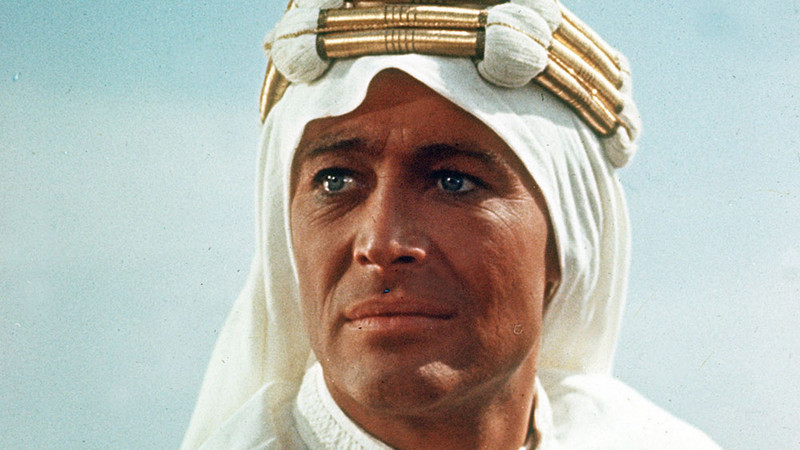
We all have that one movie that shook us to the chore and pushed our worldview in the process. It might have happened when we were at a young, and fairly impressionable age, thus making us fall in love with cinema, or it could have grabbed us at a moment in life that sparkled that once-lost magic again.
Some of the most successful and acclaimed directors working today owe it all to the one that made them pursue their own artistic endeavors and pick up a camera for themselves. In some cases that film shaped their entire body of work, influencing their style and providing the blueprint for all their films, while in other cases it curdled into a whole different type of movie. Down below are ten movies that stole the hearts of some of the most iconic auteurs working today.
1. Lawrence of Arabia (1963)

When a high-school teenager from Phoenix, Arizona named Steven Spielberg first watched this movie, he was completely blown away and walked out of the theater stunned and speechless. As he recalls it, he couldn’t comprehend the enormity of the experience and it took him two viewings to fully digest David Lean’s classic. Shortly after, he bought the film’s soundtrack and listened it on a loop for the next few months and a book on the film to try to understand how it was made. Lawrence of Arabia tells the story of a British officer who leads the Arab tribes against the Ottoman Empire during the First World War.
As a kid who grew up in the desert plains of Arizona, he easily related to Lawrence, and ever since he’s gone on to call it the greatest screenplay ever made and the one that impacted him the most. He fondly remembers meeting David Lean, a man he worshipped and studied for ages, trying to pick up his tricks. Spielberg would later oversee Lawrence of Arabia’s restoration, and he proudly remembers the honor of sitting next to Lean as he showed him his own restored movie for the first time.
2. The 400 Blows (1959)
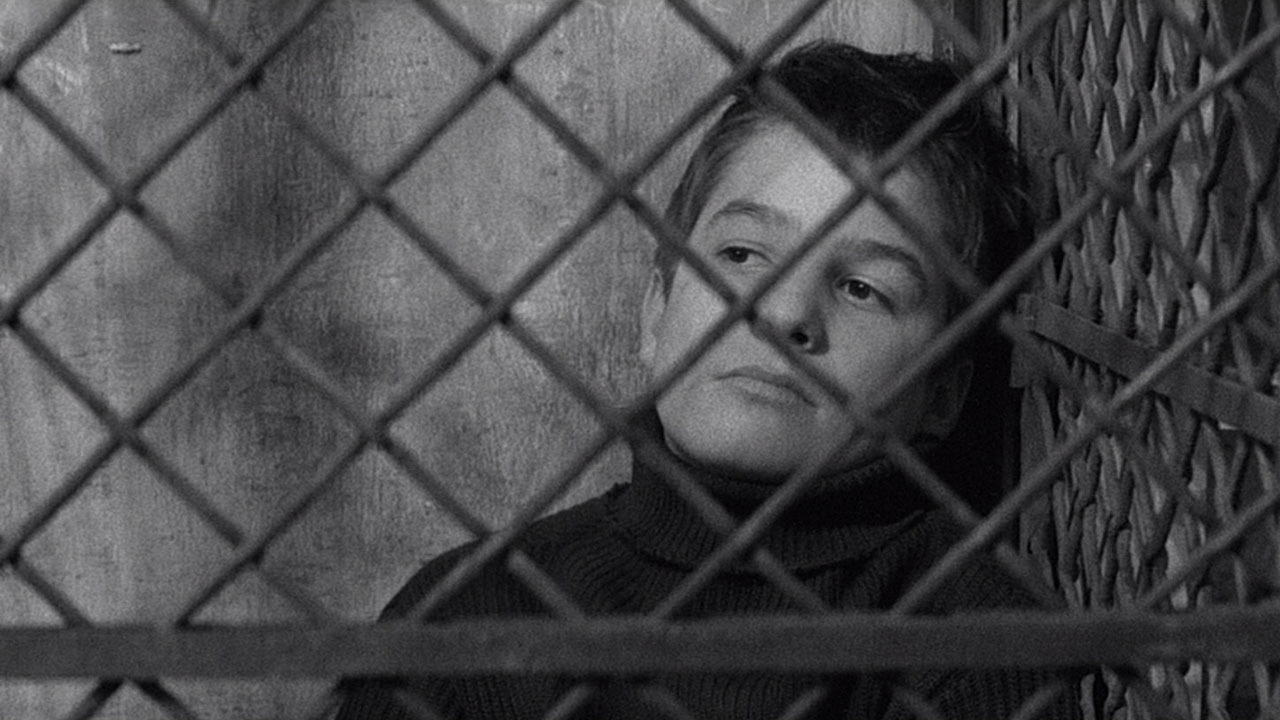
Widely considered to be one of greatest films in history and a high-water mark in the French New Wave, this semi-autobiographical François Truffaut drama tells the story about a young Parisian troublemaker, who’s currently punished by his teachers and scolded at home, with the constant rejection he receives from the authority figures in his life being the film’s core underpinning.
Wes Anderson claims that the movie was one of the reasons he started thinking on becoming a director. On the surface, Anderson’s movies tend to be colorful, quirky and light-hearted, but nevertheless share some obvious themes with Truffaut black-and-white drama. Most evidently, there is the figure of the rebellious kid alienated from his neglectful parents, a premise found in many instances within Wes Anderson’s filmography. Lots of his main characters bear resemblance to young Antoine Doinel, such as in Moonrise Kingdom or Isle of Dogs, with insufferable grown-ups also seen in The Royal Tenenbaums and The Life Aquatic with Steve Zissou.
3. Paisan (1946)
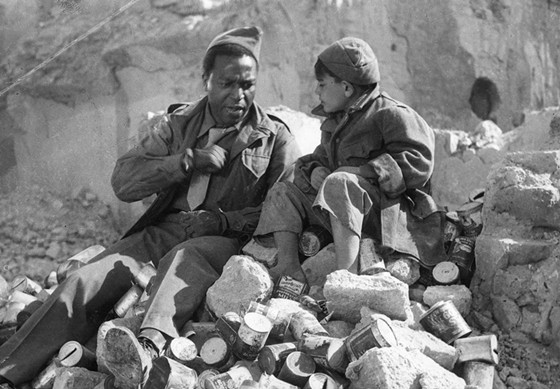
A young Martin Scorsese once watched this Rossellini movie on television with his grandparents, experiencing as he recalls ‘the power of cinema itself’. As he puts it, his reaction to what had happened to their homeland were as vivid for him as the images and characters in the film. Paisan chronicles the liberation of Italy from the German occupation in the waning years of World War II, presented in six independent episodes all prefaced by realistic newsreels.
Scorsese has always been vocal about his Italian roots, with themes of Catholic guilt and immigrant discrimination rippling through his lengthy body of work. This Neorealist movie felt like a revelation to his younger self, in that he realized that cinema wasn’t just about the movie itself but “the relationship between the movie and its audience”, which felt like “seeing reality itself unfolding before your eyes”.
4. Le Samourai (1967)
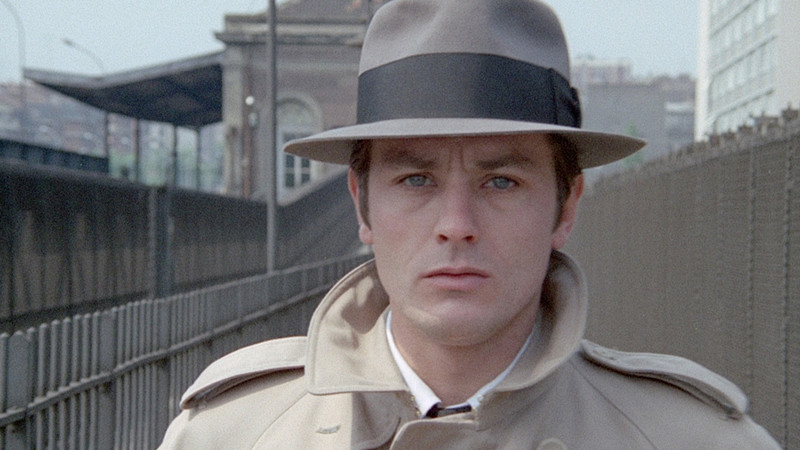
This stylized crime movie by French New Wave maverick auteur Jean-Pierre Melville stars Alain Delon as lone hitman Jef Costello. His smooth demeanor, natural charm and impeccable trench coat are only matched by his razor-sharp precision when carrying out criminal tasks. Costello finds himself embroiled in a cat-and-mouse game, fending off the police full of interrogations, double-crosses and nerve-wracking subway chases.
It’s only natural that this explosive cocktail of American noir, Japanese Samurai period pieces and French New Wave piqued the interest of one of the most iconic action directors in Hong Kong cinema, John Woo. Once set to become a Christian minister, young Woo found inspiration in arthouse European cinema, binging Melville’s crime thrillers and realizing the incomparable power of movies. The rest is history; Woo would go on to redefine Hong Kong action cinema with his collaborations with Chow Yun-Fat (Hard Boiled, A Better Tomorrow, The Killer) that established him as a household name and helped launch his career overseas.
5. Once Upon a Time in the West (1968)
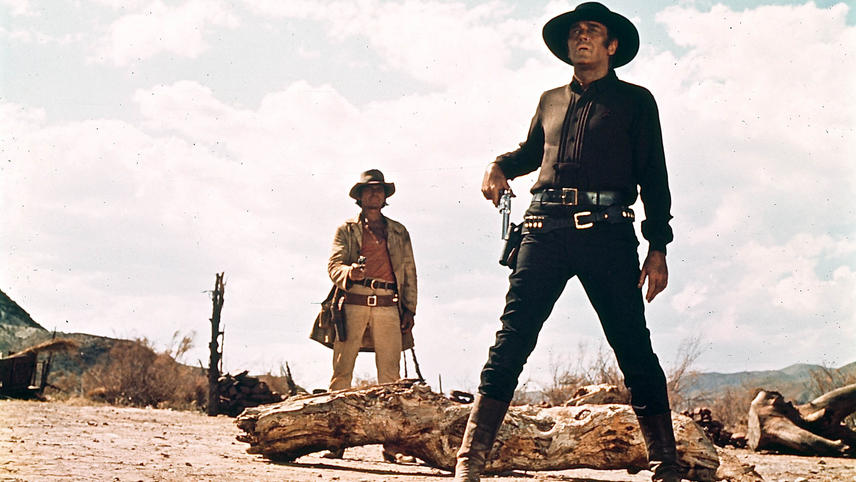
Although it’s another Sergio Leone’s classic (The Good, the Bad and the Ugly), that holds the title for best spaghetti western according to Quentin Tarantino, the American auteur has credited his 1968 Henry Fonda-led epic as the one that made him consider picking up a camera of his own. Once Upon a Time in the West showed him “how a director can control a movie and how to give your work a signature”, and instantly established Leone as his favorite filmmaker bar none. The “Pulp Fiction” director was completely fascinated by how it created an aesthetic in his mind that has inherently shaped everything he’s made ever since.
Tarantino is a devout cinephile well-versed in the history of cinema, and the influence that the works of Leone and some of his contemporaries such as Corbucci and Tessari have wielded in his own is undeniable. Django Unchained marked Tarantino’s first rodeo in the western genre, with the film borrowing the title from Corbucci’s own 1966 western. He also collaborated with legendary composer and recurrent Leone-collaborator, Ennio Morricone, in the 2015 The Hateful Eight.